Beat Fatty Liver With This Powerful Low-Carb Diet
While ‘fatty liver’ might sound like an ingredient you should be putting into pate, the reality is that for many people, fatty liver is a serious condition that has the potential to severely impact health and well-being in many ways.
The liver is one of the most important organs in our bodies – one that detoxifies our blood, processes our medicines and aids digestion.
For many years, the only dietary cause of liver damage to be feared was a large consumption of alcohol over a long period of time.
However, with overweight and obesity on the rise, the sugar and fat content of most diets increasing, and processed and fast foods everywhere, fatty liver disease threatens more of us than ever before.
The reality today is that 34% of U.S. adults have non-alcoholic fatty liver disease, and it is the leading cause of liver disease in developed countries such as the U.S., Australia and Canada.
Non-alcoholic fatty liver disease is a serious condition that can progress to permanent liver damage and even liver failure or cancer.
So how do you know if you’re at risk for fatty liver disease, and what can you do about it?
What is Fatty Liver Disease?
Fatty liver disease is a condition where excess fat gets stored in the liver and interferes with the normal function of the liver cells.
There are two main types of fatty liver disease – alcoholic liver disease and non-alcoholic fatty liver disease.

Alcoholic Liver Disease
Alcoholic liver disease occurs when the liver is put under a great deal of stress from chronic and extreme alcohol consumption, which causes fat to build up in the liver.
Long term results of alcoholic liver disease can include permanent scarring (cirrhosis) and liver cancer.
If you have been diagnosed with alcoholic liver disease, your doctor or health professional will discuss the best path to recovery and healing for you.
Non-alcoholic Fatty Liver Disease
Non-alcoholic fatty liver disease (NAFLD) is a condition in which damage and fat build up in the liver have occurred without significant alcohol consumption.
Fatty liver disease is a sign of an abnormality in the metabolism of the liver.
Part of the liver’s usual function is to filter impurities and substances like fats and cholesterol from the blood and redistribute them to different parts of the body.
In fatty liver disease, the liver is either taking in too much fat from the blood and not releasing enough, or it is producing too much fat itself. This ends up leading to an excess of fat build up in the liver.
There are two types of NAFLD.
In Isolated Fatty Liver (IFL) the only effect is a buildup of excess fat in the liver.
In Non-Alcoholic Steatohepatitis (NASH), as well as excess fat build up in the liver cells, there is also inflammation, damage and death of the liver cells, which leads to scarring.
This can be more serious as the inflammation and scarring causes long term, irreversible damage, as well as increasing your risk of developing liver cancer.
Due to the increase in overweight and obesity, and the lower quality of our modern diets, non-alcoholic fatty liver disease has become the leading type of fatty liver disease today.
Causes of Non-alcoholic Fatty Liver Disease
Most medical professionals would say that the exact causes of non-alcoholic fatty liver disease are complex and difficult to understand.
However, we can definitely say that there are clear risk factors that seem to lead to the development of non-alcoholic fatty liver disease.
The two most significant risk factors of non-alcoholic fatty liver disease are diabetes and obesity.
In the case of obesity, there is excess fat in the body, and this means there’s more fat in the blood as well.
As the liver is the major location where blood is purified, some of this excess fat ends up getting stuck in the liver.
Over time, more and more fats build up in the blood, more and more fat accumulates in the liver – resulting in non-alcoholic fatty liver disease.
In both obesity and diabetes, there also tends to be some level of insulin resistance.
This is where sugar (glucose) builds up in the blood because insulin is not working hard enough.
When insulin is not working to get glucose out of the blood, it means that not enough glucose is getting into the cells where it is needed.
Normally, glucose is the main fuel source for our cells.
But without enough glucose getting into all cells of the body, including our liver cells, these cells need to find a different way to get energy.
In most cases, this means the cells need to produce fat.
When the liver cells also start producing more fat, this fat accumulates in the liver and contributes to fatty liver disease.
Other risk factors for fatty liver disease include:
- The presence of Metabolic Syndrome
- Genetics
- Age
- Medications
- Hepatitis C
- Autoimmune or inherited liver disease
- Rapid weight loss
- Starvation
Some health specialists have a different idea about the causes behind non-alcoholic fatty liver disease, an idea that puts food choices as a major contributing factor.
It’s not fat in the diet that is primarily blamed for fatty liver disease, but a type of sugar that only gets processed in the liver – and that is fructose.
While fructose is a natural sugar found in fruit that is good for us in small amounts, in the last 30 years our fructose intake has skyrocketed.
Cheap high fructose corn syrup has been used to sweeten our sodas, candies, snacks, drinks and processed foods of all kinds.
Because the liver is the only organ in the body that can process fructose, when these concentrated sweetened foods hit the liver, the liver has to work overtime to process all that fructose.
As well as being a major contributor to non-alcoholic fatty liver disease, high fructose consumption has also been linked to our obesity epidemic, heart disease, diabetes and metabolic syndrome.
Symptoms of Non-alcoholic Fatty Liver Disease
Fatty liver disease doesn’t usually have any symptoms until the condition is quite advanced, but early symptoms could include tiredness, weakness and fatigue, loss of appetite, nausea or trouble concentrating.
As the condition gets more severe you could experience jaundice (yellowing of skin and eyes), excessive bleeding from small wounds, and abdominal bloating and pain.
Most cases of fatty liver disease are found on routine blood tests, so it’s important to stay up to date with medical checkups, especially if you are overweight or suffer from diabetes.
Foods Should You Avoid
Now that you understand what fatty liver disease is, and how it can be linked to our food choices and other lifestyle related diseases such as diabetes, obesity and heart disease.
The next step is knowing what to eat, and first off we look at what foods to avoid for fatty liver disease.
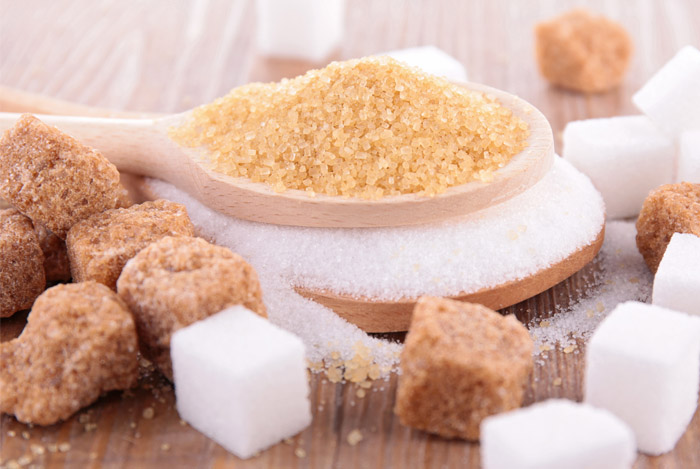
Sugar
Sugar is not only bad for your liver, an excess consumption of sugar also leads to obesity and diabetes – two of the highest risk factors for fatty liver disease.
There’s plenty of evidence to suggest that really cutting down on sugar, especially foods with added sugar, can really change the game for fatty liver disease.
Of course there’s sugar that we add to tea and coffee, but the greatest amount of added sugar we eat is actually in processed foods like cookies, cereal, cakes, juice, soda, sauces and sweetened snacks.
This is the sugar we really need to watch out for.
Be aware of hidden sugar in low fat foods, salad dressings, ketchup and many other foods.
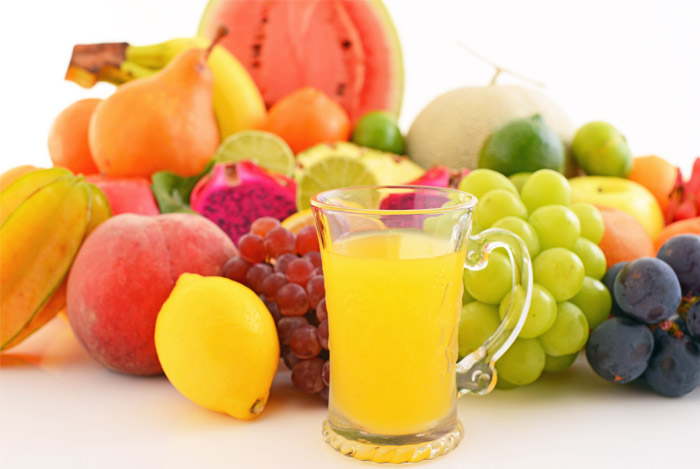
Fructose
You heard fructose mentioned before, but what is it actually?
Fructose is a natural sugar that is present in all sweet fruits.
In modern times, companies have used fructose corn syrup or high fructose corn syrup as an inexpensive alternative to cane sugar as a sweetener in sodas, sauces, syrups and other foods.
Whole fruits do contain fructose, however only in small amounts, whereas sodas and even fruit juices can contain 10-30 times more fructose per serve than whole fruits.
Fruit juices may seem healthy, but they are really just a concentrated form of the fruit sugar, without any of the fiber.
To lower your intake of fructose, avoid sweetened products and all juices, canned fruits and dried fruits.
Be aware of high fructose fruits such as watermelon, apples, mangoes and pears.
Choose lower fructose whole fruits such as berries, bananas, kiwifruit and citrus.
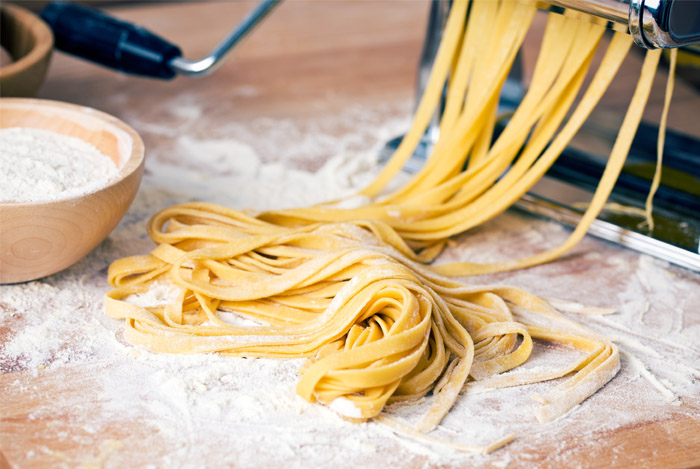
Simple Carbohydrates
Simple carbohydrates are the enemy of good health, and contribute to diabetes, obesity, heart disease and fatty liver disease.
Simple carbohydrates include:
- White bread
- White noodles
- Sweet snacks, like cakes, cookies, crackers, pastries and bars
- Sugar, honey and syrups.
Simple carbohydrates are carbohydrates that have been overly processed, removing most of the goodness that they originally contained.
Simple carbohydrates are absorbed quickly by the body, causing a spike in blood sugar levels.
As we discussed before, higher blood sugar levels lead to insulin resistance, and this causes fat to accumulate in the liver.
As many studies have shown, reducing the overall amount of carbohydrates in the diet, and eliminating simple carbohydrates is one of the most important steps towards preventing or treating fatty liver disease.
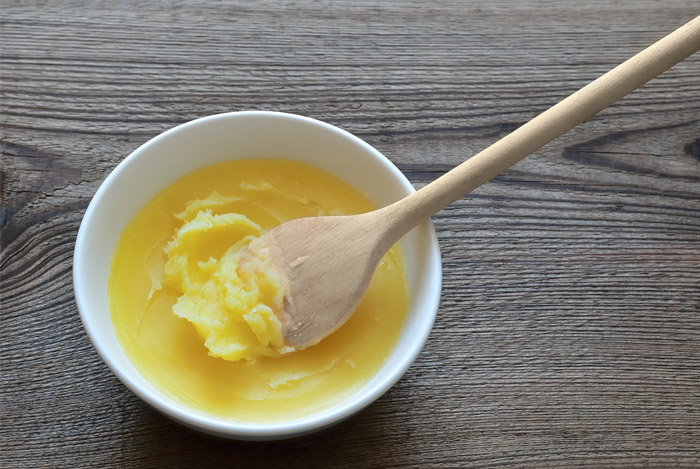
Trans and Saturated Fats
Colloquially referred to as ‘bad’ fats, it’s not hard to see where trans and saturated fats get their negative reputation from.
They are the major contributors towards heart disease and diseases of the blood vessels.
Excess fat intake can lead to obesity and a higher level of fatty acids in the blood, both of which contribute to fatty liver disease.
Cutting down on saturated and trans fat means a healthier heart, and choosing lower fat foods in general means a lower risk of obesity, and consequently, non-alcoholic fatty liver disease.
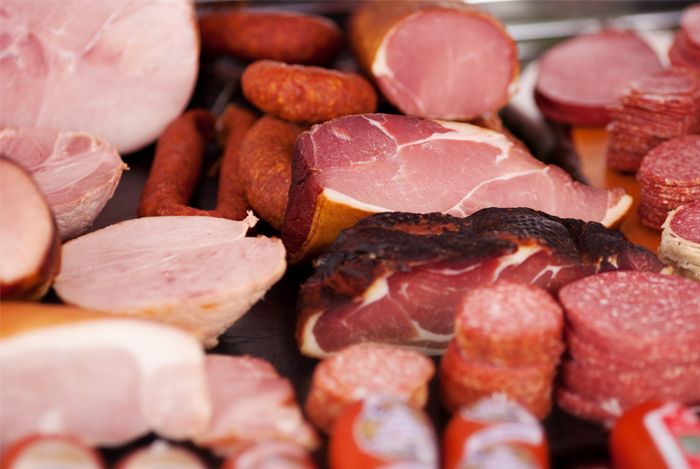
Meat
While a good protein intake supports liver healing, studies have shown that a high red meat and saturated fat intake lead to an increased risk of liver disease and liver cancer.
Without a doubt, most adults today eat far more red meat than is required by the body, and much of the meat eaten is in the form of processed meat products like sausages, hot dogs and cured meats.
Avoiding these processed meats and enjoying red meat only occasionally helps prevent and manage fatty liver disease.
Foods You Should Eat For Fatty Liver
Just as some of the foods we have looked at here are thought to contribute to or worsen fatty liver disease, there are foods you can choose that help to reduce the risk of fatty liver disease, and promote liver healing in the future.
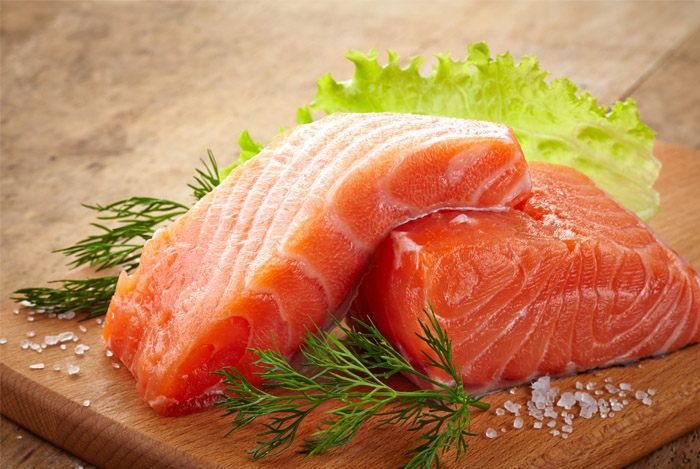
Protein
Protein is an essential nutrient in our diets.
While most of us are generally getting enough protein, one of the major protein sources in most diets is red meat, which is not so liver friendly.
A study has found that in children with fatty liver disease, their intake of fish and omega-3 fatty acids was insufficient, which may have been one of the factors that lead them to develop the disease.
Decreasing red meat intake, while increasing intake of fish, white meat, and alternative protein sources has been shown to be beneficial for optimum liver health.
Some alternative protein sources to try are:
- Organic chicken
- Oily fish such as salmon, tuna and sardines
- Sustainably farmed fish
- Eggs
- Nuts
- Legumes
- Low Fat Cheese

Good Fats
As much as saturated and trans fats are bad for your liver, monounsaturated and omega-3 fatty acids can be beneficial for your liver and your health.
High quality research is showing that omega-3 fatty acids can protect the liver from developing non-alcoholic fatty liver disease, as well as helping to remove fat from the liver once the disease has begun.
Source of omega-3 fatty acids include oily fish such as salmon, tuna and sardines, and nuts and seeds such as walnuts and flaxseeds.
A diet rich in monounsaturated fats like olive oil has also been shown to be helpful in preventing and treating non-alcoholic fatty liver disease.
These good fats act in two ways – by helping to remove some of the existing fat buildup in the liver, and by reducing inflammation throughout the body.
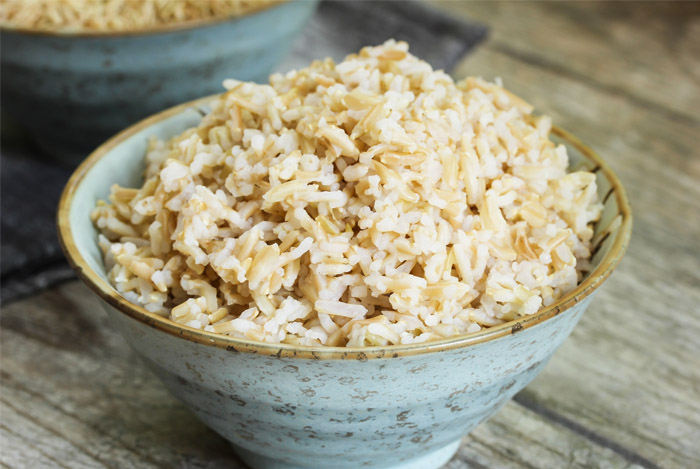
Complex Carbohydrates
If carbohydrates are a part of your diet, it’s important to choose complex carbohydrates that are minimally processed, low GI and where possible, organic.
This kind of carbohydrate releases glucose slowly into your bloodstream, keeping blood sugar levels steady and halting the progression of insulin resistance.
Complex carbohydrates include:
- Whole grain breads and cereals
- Whole rolled oats
- Brown Rice
- Quinoa
- Legumes
- Sweet Potato
As well as choosing the right kind of carbohydrate, lowering your overall intake of carbohydrate could be the next best thing you do for your liver.
Studies have shown that a lower carbohydrate diet could help to sustain a healthy liver, and reduce the amount of liver fat in an unhealthy liver.
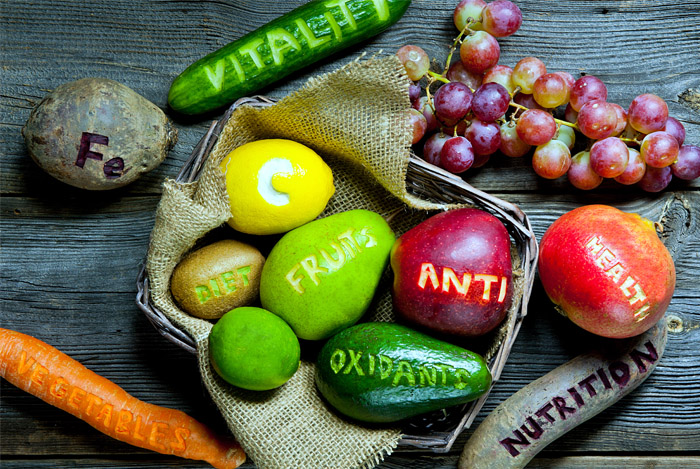
Antioxidants
Antioxidants are healthy compounds in foods that fight oxidative stress, a type of damage that occurs in cells and contributes to fatty liver disease, cancer and ageing.
Antioxidants have been shown to lower the excess fat levels and inflammation that occurs in fatty liver disease.
The two main antioxidants studied for liver disease were vitamin E and alpha lipoic acid (ALA) which are mostly found in nuts and seeds, vegetables and meats, but there are a whole range of antioxidants found in many different types of fresh foods.
The best ways to get a variety of antioxidants is to eat plenty of different colored, natural foods every day, as each different type of fruit and vegetable has different types of antioxidants.
For example, orange and red foods like carrots, pumpkin, sweet potato, oranges and peppers contain beta carotene.
Resveratrol is found in dark foods like red grapes, cocoa and berries.
Vitamin C (ascorbic acid) is found in a variety of foods including citrus fruits, strawberries, and kiwifruit.
Choosing a good variety of fruits, vegetables, beans and nuts each day should ensure an adequate intake of antioxidants.

What Should You Drink?
With all that sugar and fructose in soda and juices, you’ll be looking for something else to sip as an alternative.
There’s good news for coffee drinkers, with studies showing that coffee improves liver function and decreases the degree of fat buildup in the liver.
The benefits might not just be in the short term, with evidence showing that just one cup a day can reduce the risk of liver cancer by 14%, with two or more cups decreasing the risk by up to 66%.
Keep in mind that more than one cup of coffee per day can cause jitters and palpitations, so stick with just one cup a day if you’re unsure.
So enjoy your coffee, but make sure you go easy on the sugar and cream!
On the other hand, as little as 3 servings of alcohol per day can be enough to cause liver cancer, so steering clear of the alcohol to help heal your liver can be one of the best things you can do.
Super Liver Supplements
As well as choosing healthier foods and drinks, and avoiding foods and drinks that are harmful to the liver, supporting your liver function with powerful natural supplements can really help in the fight against fatty liver disease.

Milk Thistle
Milk thistle is the number one supplement beneficial for liver health, recommended by many clinicians and endorsed by a huge number of studies.
Silymarin, the active ingredient in milk thistle, is an anti-inflammatory and an antioxidant, and has positive effects on the heart, benefits diabetes, and assists in repairing the liver.
Milk thistle is a supplement that is well worth talking about with your doctor, for use as a support while you work on optimizing your liver health through good diet and lifestyle choices.

Vitamin D
Also known colloquially as ‘the sunshine vitamin’, our stores of vitamin D are generally replenished by adequate exposure to the sun.
However, many of us don’t get enough of this essential vitamin, with up to three quarters of North Americans thought to be deficient.
Vitamin D deficiency has not only been linked to the development of non-alcoholic fatty liver disease, but is also believed to play a role in cancer, heart disease and diabetes, so it is an important vitamin to watch.
With so many of us deficient in Vitamin D, it’s important to get tested and talked to your doctor about vitamin D supplementation for your liver health.
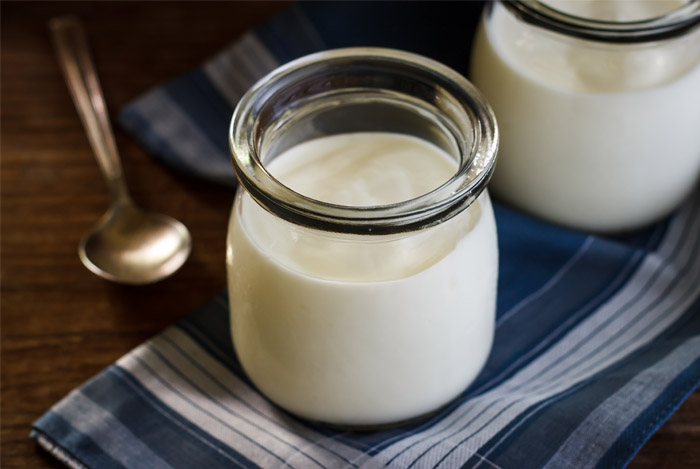
Probiotics
Probiotics are supplements that support and replenish the good bacteria in the gut and intestines, which are vital for proper digestion.
It’s becoming more and more clear that healthy gut flora and healthy intestines are critically important for optimal health and immune system support.
Gut dysbiosis and ‘leaky gut syndrome’ have been implicated in the development and progression of non-alcoholic fatty liver disease, and probiotics could be part of the solution to preventing and treating fatty liver disease.
Probiotics support healthy gut flora, which builds up the immune system and protects the body against many conditions, including non-alcoholic fatty liver disease.
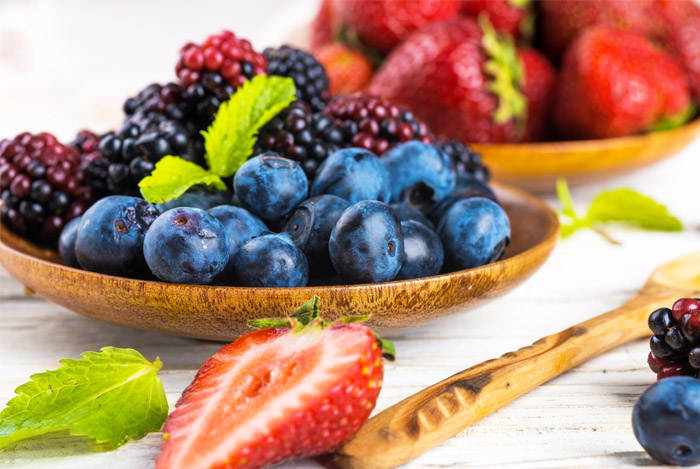
Antioxidants
In addition to these supplements, some of the antioxidants that were mentioned before, such as omega-3 fatty acids, Vitamin E, and alpha lipoic acid can also be extremely useful in supplement form for supporting and limiting steatosis (fat build up) in the liver.
Healthy Liver Lifestyle
A healthy lifestyle goes hand in hand with good nutritional choices and supplementation in order to attain optimal liver health.
When it comes to battling non-alcoholic fatty liver disease, diet is a central concern, but exercise, responsible alcohol consumption, staying smoke free, and losing weight are also important for a healthy liver and a healthy life.
Exercise: Regular exercise is crucial for maintaining cardiovascular health, losing weight and managing insulin resistance.
Health authorities recommend 150 minutes per week of moderate intensity exercise to maintain health, and even more if you’re trying to lose weight.
Alcohol Intake: Even if your fatty liver disease is non-alcoholic, it’s recommended that you avoid drinking alcohol in order to give the liver the best chances of healing and recovery.
Smoking: Smoking worsens the effects of non-alcoholic fatty liver disease in general, not to mention it’s terrible for your health in many ways – increasing your risk of cancer, heart disease and lung disease.
Ask your doctor about help to quit smoking if you need it.
Losing Weight: Losing weight is considered one of the most critical steps in the treatment of non-alcoholic fatty liver disease, especially reducing weight in the abdominal area.
Effective weight loss methods are anything that is sustainable and works for you, but others have found success with intermittent fasting, reduced carbohydrate diets, and calorie controlled diets.

Conclusion
A healthy diet and lifestyle for the liver is not so different to a healthy lifestyle in general, with just a bit more focus on the carbohydrate content and avoiding simple sugars, especially fructose.
Taking part in regular exercise, quitting smoking, reducing alcohol intake and eating a healthy balanced diet all contribute to optimal overall well-being, a healthy weight, and a strong lean liver – and that supports a better, brighter life.
FDA Compliance
The information on this website has not been evaluated by the Food & Drug Administration or any other medical body. We do not aim to diagnose, treat, cure or prevent any illness or disease. Information is shared for educational purposes only. You must consult your doctor before acting on any content on this website, especially if you are pregnant, nursing, taking medication, or have a medical condition.
HOW WOULD YOU RATE THIS ARTICLE?
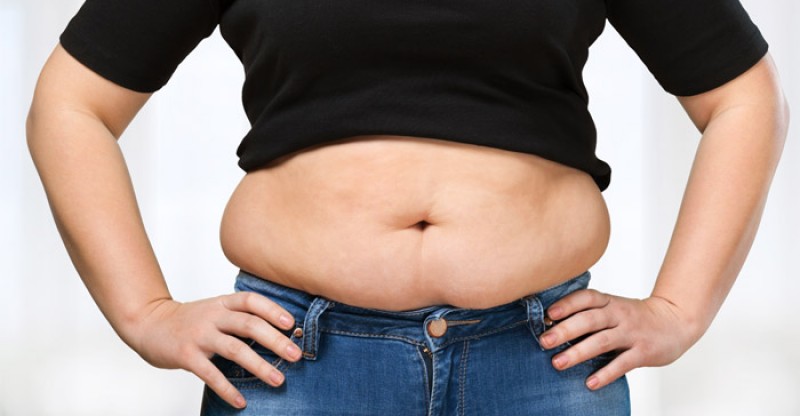


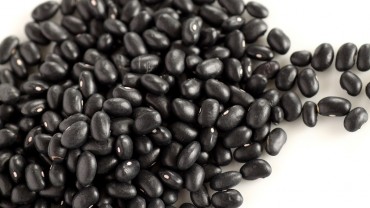
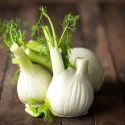


thank you for a clear and helpful article.
the appealing photos help break up the text
nicely.
your info is in line with the best sources i have read.
Thanks for the very well researched and detailed info provided.
Thanks for the great article, very helpful and complete.
Although, do you think the fructose is a huge problem? Because you need sugar from somewhere, and this would be a great substitute because is much slower…